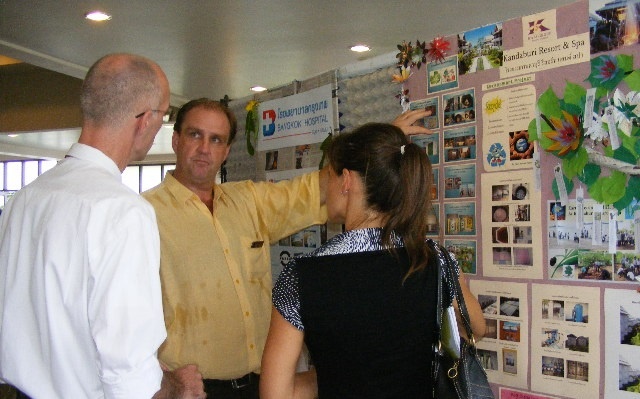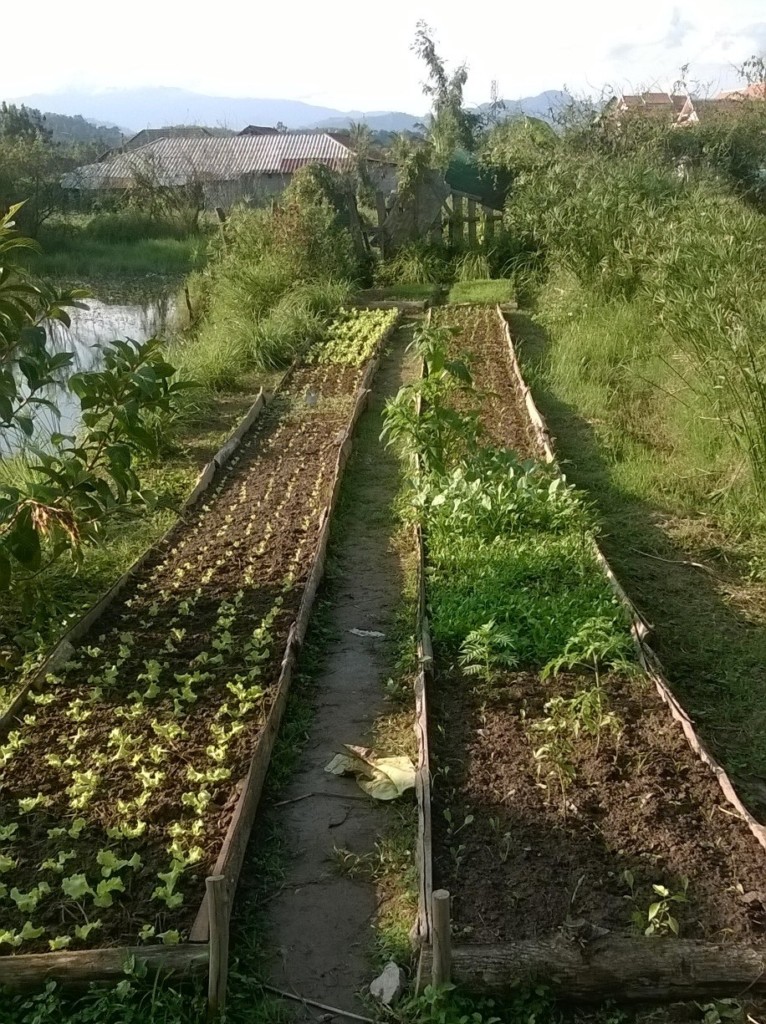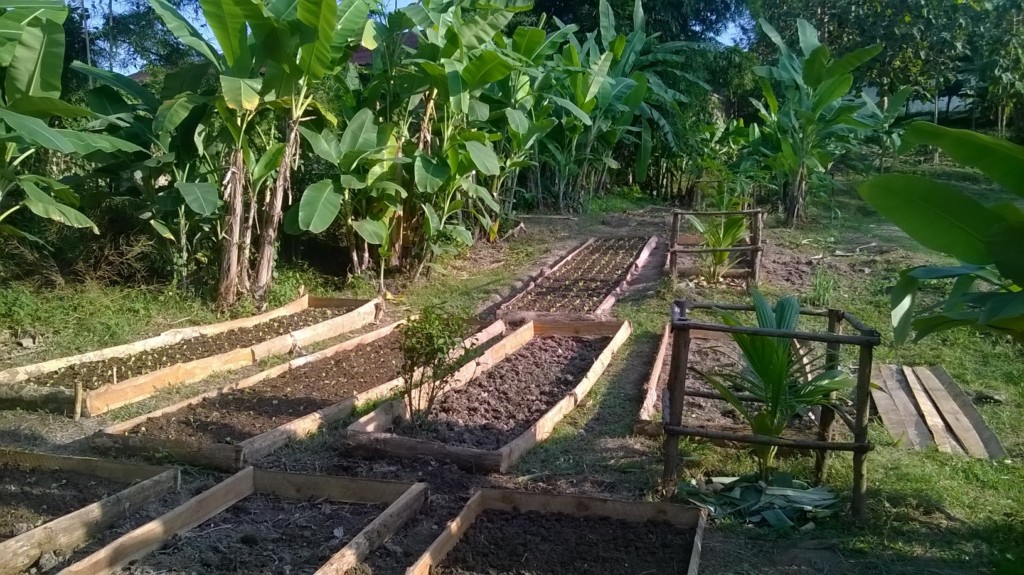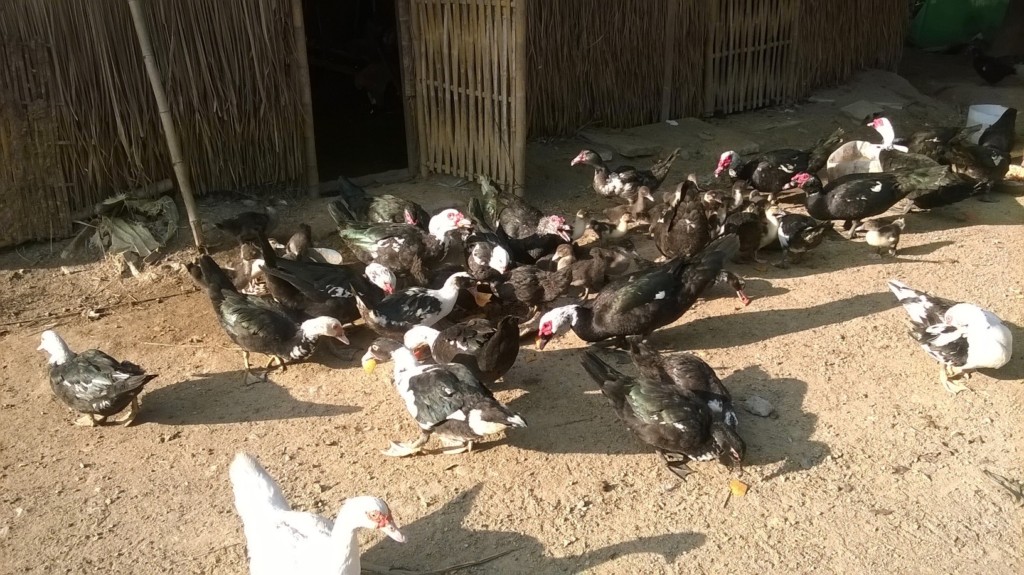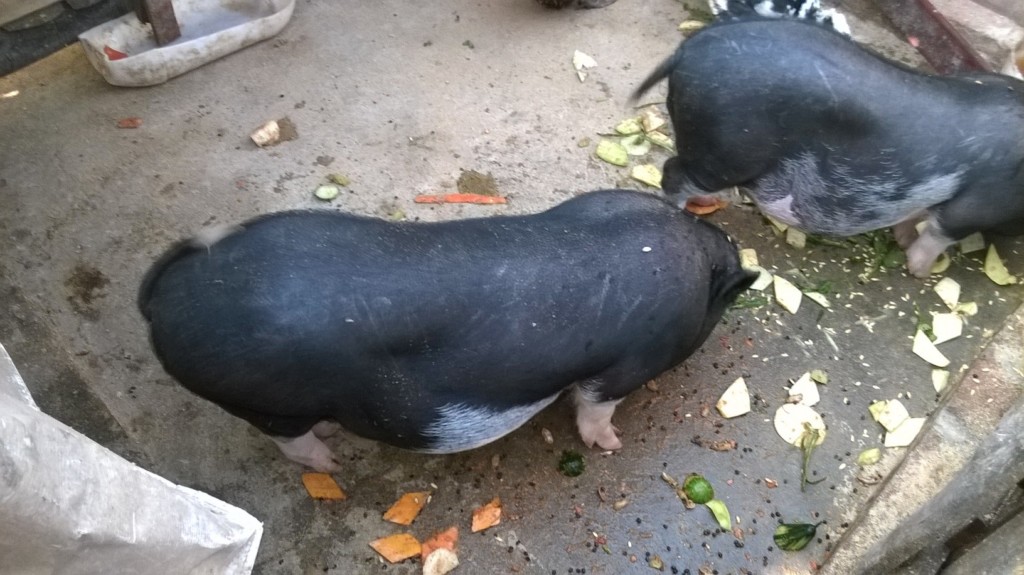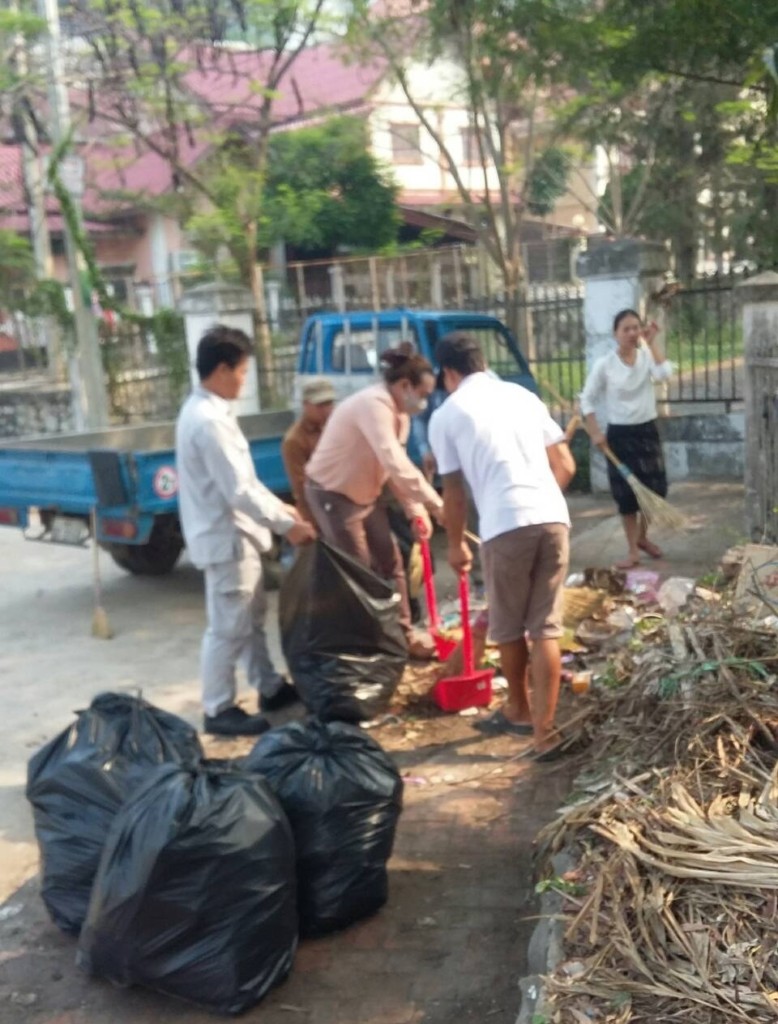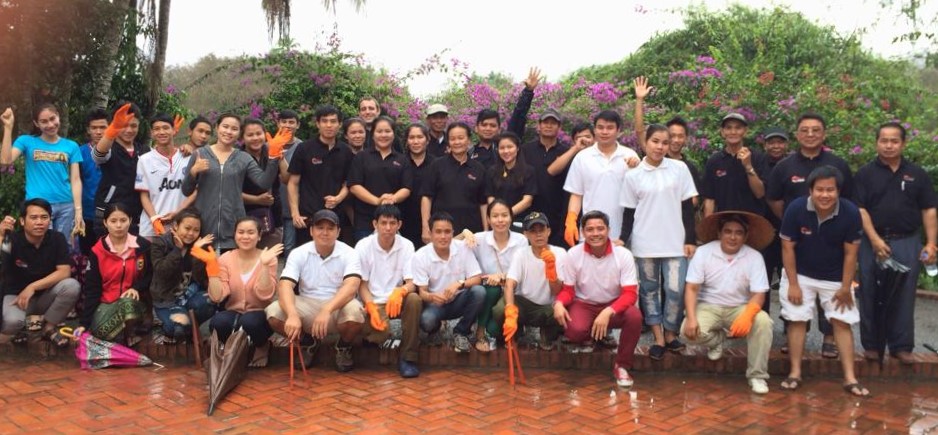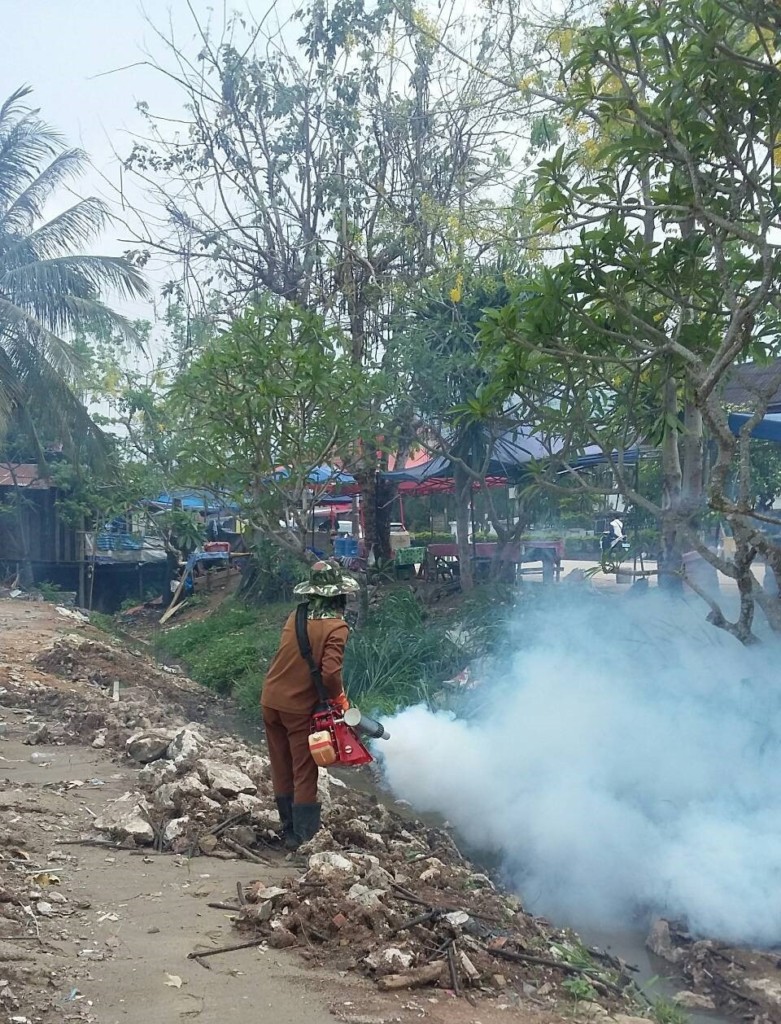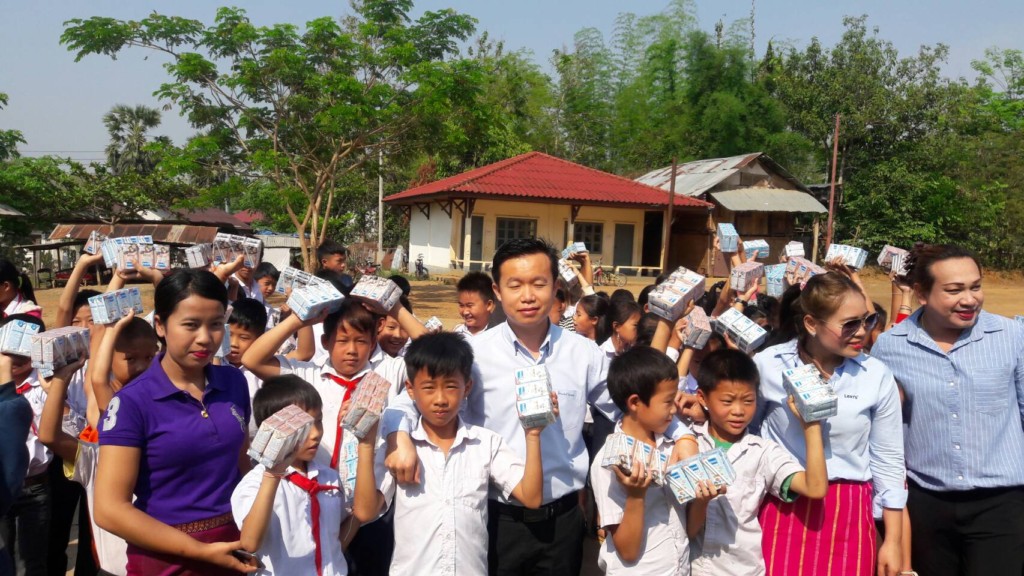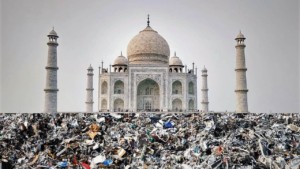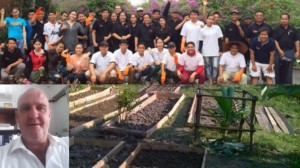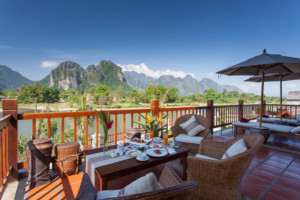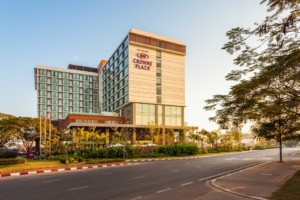How to make a hotel green & responsible: Get on with it!
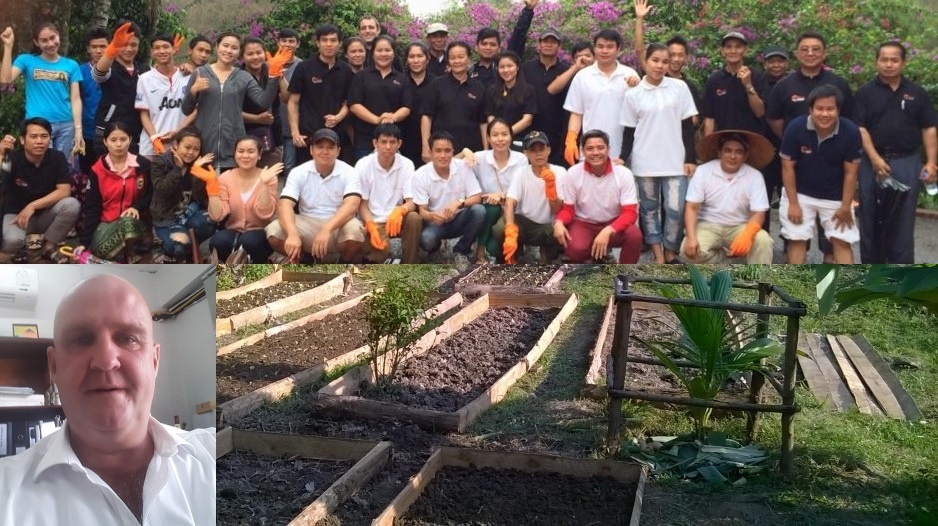
Hospitality industry professional John Morris Williams shares a little of his long experience initiating and driving common-sense measures at hotels and in host communities. Mr Williams makes it clear that he favours real action over expensive certification, believing that discerning supply chain partners and guests are capable of perceiving green-washing and cynical CSR.
UPDATE, June 2021: Prompted by “GT”, Mr Williams offered the following update to his June 2017 “GT” Insight:
I am no longer general manager at the Luang Prabang View Hotel. That hot seat has been taken by Sengmnay Chaila, who has continued the adventure with his team. Due to COVID and our second lockdown here in Laos, life has been hard for the property. Upkeep of the gardens is ongoing as plants don’t care about COVID. And mother nature needs to be taken care of daily.
I have seen great recycling efforts here in Laos, as well as initiatives to clean up the rivers, including the Mekong. There are a lot of heroes in Laos. And they are more visible now due to less traffic. Their carts and trucks ply the roads, cleaning up and recycling what they can; making a living while keeping Laos clean.
I would like to see a surge in garbage separation before Laos opens its doors, especially at historic locations and tourist attractions. This would make the statement to locals and visitors alike that Laos is ready, clean, and green.
With that noted, Mr Williams is happy for his “GT” Insight to be given a fresh round of publicity. He hopes that it continues to be of interest to readers.
Life’s a beach – clean it up!
My passion for initiating common-sense “green” projects in the hospitality industry began 1989/’90 in Krabi, Thailand; at Dusit Rayavadee, as it was called back then.
We had to ship all our garbage by long-tail boats to the mainland daily. So we separated it. Paper, cardboard, old oil, tins, aluminium, plastic bottles, wine bottles, and even broken glassware and china was either reused or sold. All the staff were involved in recycling from day one and it worked wonders for the hotel and the community. The daily shipment was slashed as a result. Weera Uabamrung, our boat manager, came up with the idea of using fishing net bags instead of black bags for garbage shipments to the mainland. The combination of these initiatives resulted in a huge reduction in the amount of garbage disposed as well as the cost of doing so.
Other hotels, such as Six Senses Koh Samui, Kandaburi Resort Samui, Infinity Samui, Haad Tien Beach Resort Koh Tao, all joined in to collect and separate their garbage. We also encouraged hotels to produce their own effective microorganisms (EM) for use in rivers and drains when required.
We developed a small kitchen garden for our herbs and spices. Food waste went to local pig farms or was composted for the garden.
We also organised beach clean-ups twice a day during the stormy seasons; or all day depending on the severity of the storm – if we had a beach left to clean up! And we collected washed-up seaweed, which makes great compost. We also set up a dive association whose members would join us on beach clean ups. They cleaned the reef while we cleared the shoreline. Local emergency services teams and a truck from the tessaban (municipality) also pitched in. Tourists and local residents regularly participated. Some days more than 300 people would turn out to clean the beaches.
While on Koh Samui I was the head of the “green team” for the Thai Hotel Association’s Southern Chapter. We were able to work with the mayor to offer grants of THB 50,000 (~ USD 1,466) per school to create an awareness program, build recycling sheds, and install rain gutters and water tanks. Some 26 schools on Koh Samui benefited. Students would even bring their garbage from home to be sold for funds to buy books and school accessories. Our human resource managers were involved in facilitating communications between teachers, hotels, and the local government. Collectively we managed to reuse or recycle about 50 tons per month of what would have otherwise been sent to the dump on the mainland. This program was a huge success and is still running today.
Koh Tao was a little different. The hotel separated all its garbage and the local staff sold or kept the reusable and recyclable items for themselves. The beach at Haad Tien was cleaned around the clock on stormy days; yielding up to 300 bags per day of rubbish, including plastics, waste from junkies (syringes), broken bottles, tires, and a lot of seaweed (for compost).
Life’s a river – goodness flows downstream
When I started managing the Luang Prabang View Hotel, in Laos, March 2014, I faced a great challenge encouraging people to embrace the recycling concept and for staff to treat it as part of their job. Some staff already kept bottles for themselves or to sell them, although this was not a team effort.
The hotel already had grey-water ponds when I arrived, and was reusing this water for the gardens. This was a great beginning. The ponds are deep. We have fish in them and use water hyacinth to keep them clean. We add our own effective microorganisms (EM) to the ponds and all hotel drainage systems when required.
We also use EM to remove grease from the tiles of guest rooms. It does a great job without harming the staff or the water system with too many chemicals.
We make our own EM. It takes 45 days to get molasses and fruit peelings to mature into a brown, sweet-smelling, friendly liquid full of EM. We donate our surplus EM to Free the Bears and Laos Buffalo Dairy for them to use to clean their pens out and reduce smell.
Water-saving cards installed in all rooms work well. We have key cards for saving electricity. And LED lights have been installed. With these changes effected across the entire hotel in 2017, this will bring our utility costs down by 15 – 20%. In addition, our toilets have reduced water consumption and we have electric vehicles for the hotel grounds.
We have installed a water station at the hotel for guests to refill their water bottles before they go out or when they return. For meetings we ask groups to use carafes rather than plastic bottles on the tables. Most comply. Green net bags are now used in many areas of the hotel to keep our plastic bottles. Again this saves a lot of money down the line.
All the kitchens now have a full system of recycling and reusing. Yoghurt pots go to the gardening team for growing seedlings. Soda water bottles are used to keep honey from local sources or for cold drip coffee. We keep plastic bags for recycling and even sell them back to some suppliers.
There are six compost heaps at Luang Prabang View Hotel. Since we started composting in about 2014 we have not purchased any soil or fertilisers. Previously we were spending USD 200 – 300 a month on that.
- Garden beds. Luang Prabang View saves money and food waste by growing a lot of the produce it needs for the kitchen. The property also maintains 100 ducks and four pigs.
Egg cartons are composted after first using them to grow seedlings. Coffee grounds go into compost. We even collect grounds from Joma (a local cafeteria) once a week. Grass cuttings and dry leaves are also collected and added to the heaps; pushed along with some EM and water from time to time. Another hotel in town, the Sanakeo Boutique, regularly sends us their garden waste for our compost heaps as they don’t have the space. All paper waste – newspapers and A4 – goes through the shredder and is added to the compost, except for the newspapers local people collect from time to time to make bags to sell at the markets.
Within the grounds we maintain four pigs and 100 ducks. Pigs help to consume food waste that’s not best suited to compost until they are fat enough for the butcher at around four-to-six months old. This revenue goes back to the hotel. Four piglets are then bought and the cycle begins again. Similarly we sell or use three-to-four-month old ducklings and spare enough of them to maintain a breeding population of 100.
Through implementing this systematic approach to waste management, gardens, and livestock, we have been able to teach the hotel’s teams how to more efficiently and effectively manage their own gardens and livestock at their homes and villages.
The fruit and veggies we grow in our gardens – from bananas to beans, dragon fruit to marigold flowers – save us up to USD 400 per month. Banana trees that have cast their fruit are cut down and given to Chang Pheauk, the white elephant of Luang Prabang. The hotel is the keeper of Chang Pheauk. And her dung makes great compost!
Surplus garden produce has a lot of uses. For example, surplus bananas are baked into banana bread for the hotel and for the two local schools we help out on a regular basis.
Not only do the students get a tasty treat occasionally, we also arrange to have their schools sprayed for mosquitoes twice per month in the wet season, deliver books and parcels of food, and go to clean their dorms if need be. We also teach students how to recycle and make money from it. The team enjoy going out and meeting the children.
Plants and trees that sprout new shoots are used throughout the interior of the hotel, again saving us a substantial amount of money. Aloe vera, goosefoot, white lilies, and other plants that simply need care and water do the job for us. All rooms have goosefoot plants. They regenerate fast, are easy to separate, and they help clean the air. In meeting rooms we use regenerative palms and plants, which make the rooms look nice and green. They are all easy to look after and we change them every month or two depending on how many days the air conditioning has been running and the room occupied.
- Luang Prabang View teams participate in town clean-up drives independantly and in partnership with other stakeholders.
While there is no beach to clean up in Luang Prabang, there is the town itself and the banks of Mekong and Nam Khan rivers on which it lies. We actively clean certain areas of town in front of our hotel and we often join the town clean-ups on the last Saturday of each month. The local government who are in charge of garbage collection are starting to help the community with this. They have taken on the challenge although we need to see more drive from them.
Here at Luang Prabang View Hotel we have developed a cycle of work and life that has given our teams a lot to think about on a daily, weekly, monthly, quarterly and yearly basis. To pull all this together we have an educational program for our team. We also work with our commerical agents and update them on our initiatives. EXO, for example, is a good supporter of what we do.
Common sense, hard work, conviction
It is very hard to put all this down into words; even more so into practice. It takes teamwork, effort, time, and perseverance.
We don’t follow any rules from green organisations as they just cost money. This works against being green and clean as they charge a lot just to have their names associated with a place.
General managers and hoteliers should not go that way. Instead, do as much as you can for your hotel, push it out on social media, and email your agents. This is good enough. Don’t waste money on these people. Use the money at the hotel. Agents will know if you are telling the truth. They will inspect.
Your initiatives should come from the heart. As GMs we shouldn’t be looking over shoulders at what others are doing. Let others look over yours while you do what can be done at your hotel.
My thoughts are that this is a must-do. Some will disagree and say we are wasting time. And most who don’t participate don’t see any monetary value and they will never join, and there are many of them.
Educating our staff and children is vitally important; to give them a new direction; one that cares for their environment, their country and the planet as a whole. Education programs are not well set up in any Asian destination I have worked in. And it’s so disappointing that there is no real drive or push.
- Luang Prabang View regularly helps out two local schools with mosquito control, food parcels, and education programs.
Recycling is a good practice and it needs to be an integral part of the community. UK, Brazil, Europe, and many other places sell garbage to the Chinese and they turn this into new goods to sell back. All power to the Chinese. They have seen a way to reuse waste and create something from it; jobs and profit, and their industry is moving forwards. Meanwhile many of our societies still scrape the bottom of the barrel. Without recyclers, our garbage piles would be mountainous.
In Laos we see people who collect and recycle garbage day in and day out. They scrape out a living. But I believe they can make a much better living because “garbage is gold”. This is the slogan of Wangthongpanith, the Thai garbage collecting company. I agree with it.
As for the initiatives we have undertaken here at Luang Prabang View Hotel, there was only ever one way to get them done: Do them! Then share them with your team. And make them understand how vital it is to recycle and reuse and keep their areas clean.
It’s down to common sense, hard work, and a person convinced that it is well worth doing!
What do you think? Share a short anecdote or comment below. Or write a deeper “GT” Insight. The “Good Tourism” Blog welcomes diversity of opinion and perspective about travel & tourism because travel & tourism is everyone’s business.
About the author
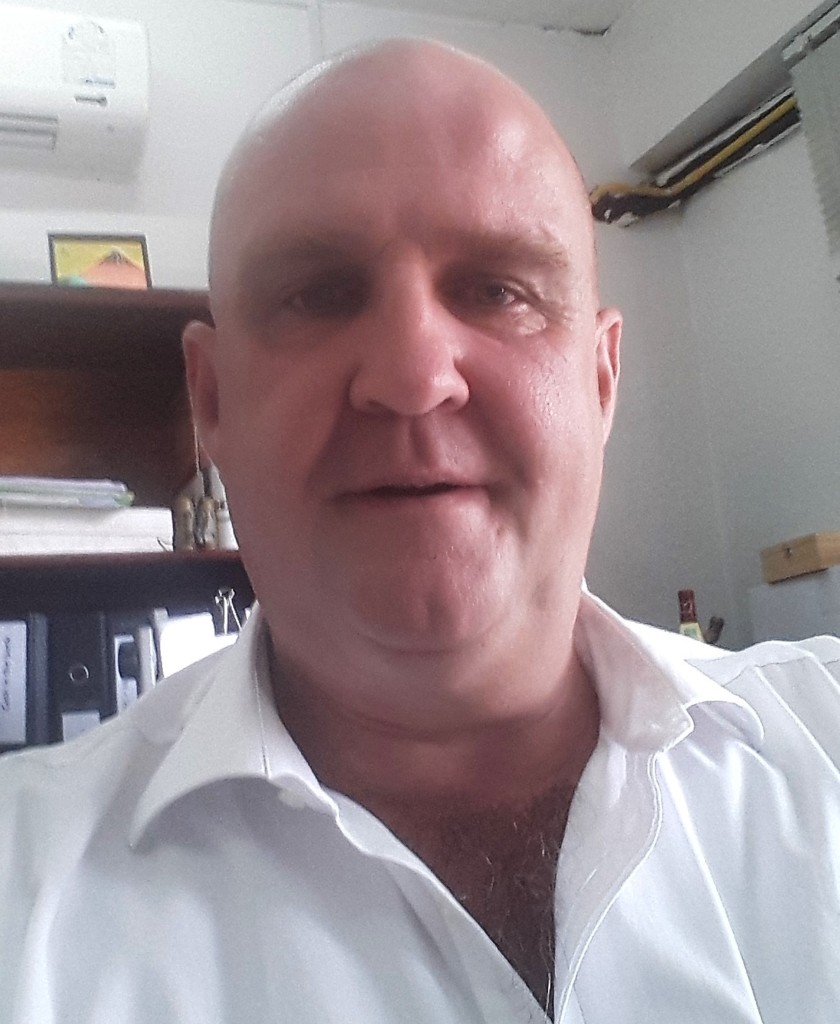
John Morris Williams’ hospitality industry career has taken him from his home town of Porthmadog in Wales to some of the most exciting destinations in the world: Scotland, France, Barbados, Saudi Arabia, Thailand, and now Laos. Each has had its own challenge and adventure, he says. Mr Williams’ early career was as a chef until he arrived in Thailand and “moved out of the heat of the kitchen and into the fire of running hotels, building them, and reshaping them to be profitable, or not”. His focus in Laos is “giving back to the communities I work with, helping those who need help in the industry, and building teamwork and community spirit with other stakeholders”. Mr Williams is the co-founder of Lao travel portal WeAreLao.


